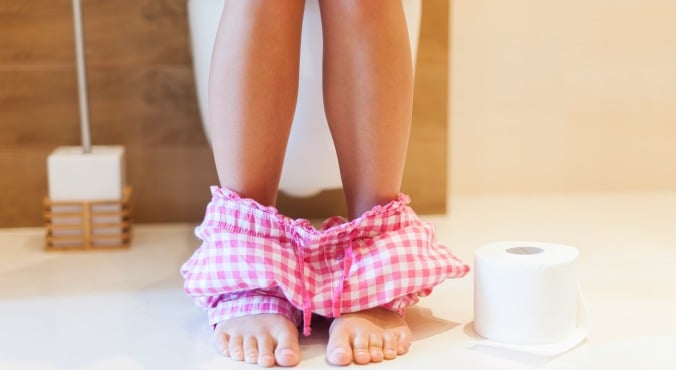
Image via iStock.
One question that has plagued me since I moved in with my boyfriend is: why does he always need to get up to go to the bathroom during the night? And why don’t I have to?
It all comes down to a condition called “nocturia” which is the need to urinate frequently during the night, interrupting your sleep pattern.
According to research in The Journal of Urology, nocturia is more prevalent in women, with up to 44 per cent of us between 20-40 years-old getting up at least once a night to visit the bathroom.
RELATED:What the colour of your urine says about your body
While you shouldn’t worry if you’re waking up every now and then to pee during the night, getting up frequently could indicate you have an issue.
“Generally it isn’t considered a problem until people are getting up more than two times a night,” explains Dr Sam Hay, director of a Sydney medical practice.
“Some people get up frequently and see that as normal. The amount of times people need to get up during the night also goes up as you get older, which is something to keep in mind if you are getting up more often.”
The three types of nocturia
According to the Sleep Health Foundation, there are three different types of nocturia:
Nocturnal polyuria
This is when people urinate less during the day, and excessively at night. This is usually a problem with a person’s body clock, and it can also be due to sleep apnoea. There are also some other causes, including diabetes, kidney issues and heart trouble.
